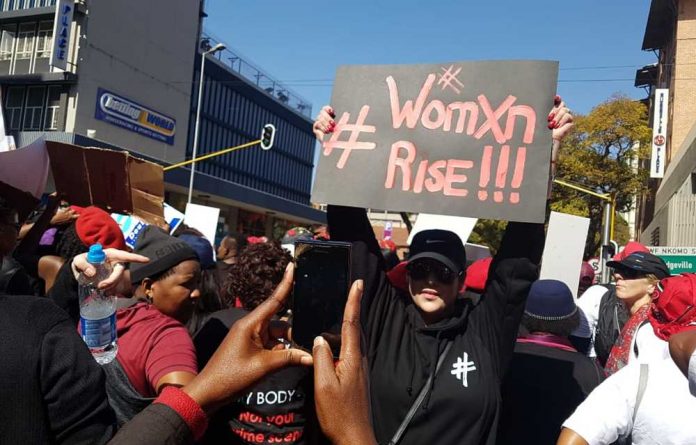| We have been presented the opportunity to reimagine and redesign our society into a vibrant and equitable one |
|
COVID 19 has unearthed massive inequalities within our societies and brought to glaring light the unique burdens which women carry the world over. Allocation of response resources should be targeted towards the immediate needs of managing the virus as well as future-looking to simultaneously dismantle the structural, systemic barriers which reinforce inequality and disenfranchisement. We have been presented the opportunity to reimagine and redesign our society into a vibrant and equitable one. We must place women and women’s leadership at the core of the response and beyond.
COVID-19 has caused massive shocks to both the informal and formal economies in Africa. World Bank estimates that the Sub-Saharan Africa region will see significant economic decline, and plunge to as low as -5.1% this year. Women have been hit particularly hard by this economic downturn. Emerging evidence from the ILO on the impact of COVID-19 suggests that women’s economic and productive lives will be affected disproportionately. They have less access to social protections and their capacity to absorb economic shocks is very low. As the economic toll of the crisis is felt, there is also an increased risk that female children will be forced into early marriages, and the number of child marriages and early pregnancy may increase as girls are turned into a source of quick income for families. Given these shocks to society at large, it is no surprise that our food systems will be dealt a significant blow resulting in the dangerous exacerbation of food insecurity and nearly doubling current levels of widespread hunger. COVID 19 has disrupted supply chains and thrown the global food economy into disarray. As border closures, production stoppages, and export restrictions limit supply, demand has surged, inflating prices and impacting the world’s poorest and most marginalized people, and Africa is no exception. Women are central players in the food chain and key to agricultural output on the continent. 50% of the agricultural activity on the continent performed by women, who produce about 60-70% of the food in Sub Saharan Africa. Studies reveal that the cost of malnutrition has a tremendous impact on a country’s economic growth. A lack of adequate nutrition is a key contributor to unacceptably high levels of both maternal and child mortality as well as stunting– and therefore to the loss of human capital for the overall economic, social and political development of the continent. The fragility of African health systems is revealing itself and women and children are most vulnerable to the lack of attention and adequate specialized services the diversion COVID 19 is causing resulting in an anticipated surge in child and maternal mortality. Domestic violence has increased by upwards of 25% in some countries as a result of lockdowns. Victims face limited access to protective services during periods of quarantine. A Call to Bold Action:
COVID-19 presents us with unprecedented opportunities for the regeneration of the African socio-economic landscape and the movement towards a just, equitable and sustainably prosperous continent. Let us dare not squander this opportunity for a rebirth. About the authors Dr Ngozi Okonjo-Iweala is Board Chair, Gavi the Vaccine Alliance, AU Special Envoy to Mobilize International Economic Support for the Fight Against COVID-19, Former Finance Minister, Nigeria Dr Vera Songwe Executive Secretary, United Nations Economic Commission for Africa Ms Maria Ramos Co-Chair of the UN Secretary-General’s Task Force on Digital Financing of the Sustainable Development Goals and former Chief Executive Officer of Absa Group Limited |










